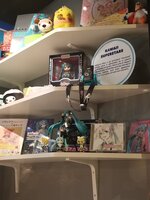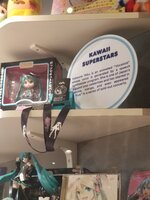However, Yonezu started making music using Vocaloid, the singing-synthesizer program best known for being represented by Hatsune Miku. Under the name Hachi, he created rollicking tracks out of digi-singing,
complete with videos he made himself, that could then be shared on streaming site Niconico.
Forget the Western media gawking at holographic pop stars — the Vocaloid community offered something approaching a legitimate alternative to the J-pop mainstream, with artists from all backgrounds crafting their own music and visuals for one another. All they needed was a piece of software.
Like all great online ideas that go sour, Vocaloid’s results never quite matched its potential. Yonezu himself even made a somewhat pessimistic song and video a few years back
comparing Niconico to a desert. Yet, this year, a generation of artists raised on Vocaloid and its ethos of creativity climbed into the J-pop mainstream. Besides Yonezu, projects such as
Yorushika and
Zutto Mayonaka de Iinoni (better known as Zutomayo) released celebrated albums built around intricate songs and eye-catching videos that often doubled as lore for stories the artists were also creating through their music. Singer-songwriter Mafumafu got his start covering Vocaloid songs, but now
creates charming pop. Nikkei Trendy magazine pegs Mafumafu as the artist to watch in 2020, with a gig at Tokyo Dome in the spring, sure to sell out.





























